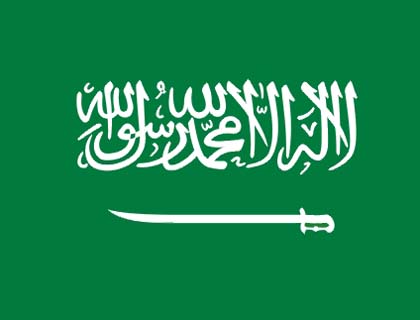The donations come with the direct support of the Saudi and UAE governments
ISLAMABAD - Donors in Saudi Arabia and the United Arab Emirates (UAE) are sending an estimated $100 million annually to radical Islamic schools in Pakistan that back militancy, according to a leaked U.S. diplomatic cable published Sunday.
The donations come from Islamic charities and missionary organizations and are made “ostensibly with the direct support” of the Saudi and Emirati governments, said the cable, which was written in November 2008 and was based on Pakistani government and nongovernment sources that were not identified.
U.S. lawmakers and senior American officials have said before that Saudi donors and charities were still directing financial support to Islamic extremists in the region, including in Afghanistan. But the cable was notable because it indicated the financial support was now reaching a once moderate area of southern Pakistan that observers have been warning is becoming more radical.
Saudi and Emirati officials did not have any immediate comment.
The schools in Pakistan’s southern Punjab province single out poor boys for indoctrination and send some of them off to military training to fight against the Pakistani government and the West, said the cable, published on the website of Pakistan’s Dawn newspaper. The respected English-language paper received more than 4,000 diplomatic memos in a deal with WikiLeaks, the secret-spilling website.
“Local economic conditions coupled with foreign financing appear to be transforming a traditionally moderate area of the country into a fertile recruiting ground for terrorist organizations,” said the cable, which was sent by Bryan Hunt, the principal officer at the U.S. Consulate in Lahore at the time.
Most of the militant violence in Pakistan occurs in the northwest along the border with Afghanistan. But many analysts have warned about the growing danger of militancy in Punjab, Pakistan’s most populous province, and have criticized the government for not doing enough to crack down on radical Islamic schools, or madrassas, that feed militant groups.
“The provincial and federal governments, while fully aware of the problem, appear to fear direct confrontation with these extremist groups,” the U.S. cable said.
Some of the donations go to schools run by Deobandi clerics who preach the same strain of hard-line Islam that inspires Taliban militants in Afghanistan, the cable said. Younger children between the ages of 8 and 12 are their preferred student recruits, apparently because they are easier to indoctrinate, it said.
The U.S. Consulate in Lahore “believes that this growing recruitment network poses a direct threat to (U.S. government) counterterrorism and counter-extremism efforts in Pakistan,” the cable said.
Saudi Arabia, in particular, helped facilitate the rise of radical Islamic movements in the region in the 1980s and 1990s, in part to spread its ultraconservative Islamic traditions. It also initially supported the Taliban government that emerged out of Afghanistan’s civil war.
Charitable contributions from individual donors in Saudi Arabia and the United Arab Emirates are still thought to be finding their way to radicals even after steps to cut off such financing after the Sept. 11, 2001, attacks in the U.S.
Dawn published other U.S. cables on Saturday indicating American troops provided intelligence and reconnaissance support to the Pakistani military in 2009 as they fought militants in the country’s tribal region near the Afghan border.
The Pakistani army denied those reports late Saturday, saying no U.S. troops were involved in military operations in the tribal region.
The presence of U.S. troops is contentious because of high anti-American sentiment in Pakistan. (AP)

